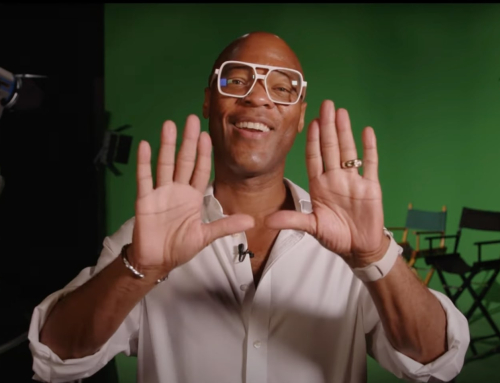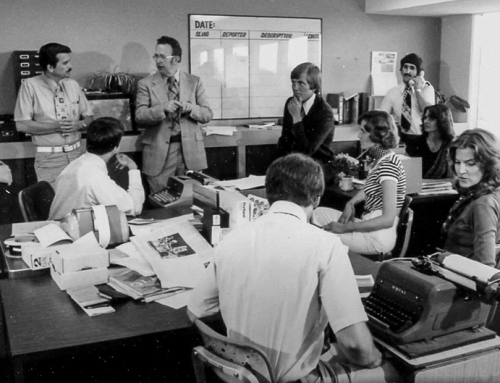The nine students who participated in the UGreece Film Program this summer returned home with a 25-minute feature film and a music video and with some valuable experience on cutting-edge filmmaking equipment.
The program, a four-week, six-credit course that included work on storytelling skills, exterior lighting and editing, as well as classes on the history of Greek cinema, was led by Associate Professor Ed Talavera.
Lost in the Aegean – the film’s rough working title, Talavera said – tells the story of two American girls who accidentally kill a German tourist in Greece. Two of the participating students, Maggie Weston and Tara Brown, of UM’s theater program, were the lead actors in the film.
Talavera said the student filmmakers worked from an outline developed in meetings before the trip, and then improvised on the plot and the dialogue as they moved from location to location in the Greek isles.
Morgan Coleman, a senior film and visual journalism major, said the improvisation had taught her and her classmates to think on their feet.
“We often worked on the script until the wee hours,” she said. “It’s a good skill to have. Things aren’t always going to go according to plan, and you still have to make it work at the end of the day.”
A 25-minute rough edit of the film has been completed, Talavera said, and the students will soon work on a final cut.
The music video is based on a song written for the film by students from the media writing and production program of the Frost Music School. Talavera said the filming for the video was completed in Greece as well, and now the actresses will go to the recording studio to dub their own voices to the piece.
And the relationship with the Frost Music School continues: Professor Chris Boardman, who directs the writing program in the music school, has been given a rough edit of Lost in the Aegean, and his students are preparing to write a score for it.
“Everything should be done by the end of the semester,” Talavera said, adding he plans to enter the film for competition in film festivals.
A unique aspect of the summer program was that it offered students the opportunity to work with RED cameras, which allow for state-of-the-art video recording.
The cameras were rented for the class in Greece, but the School of Communication has just acquired two, at a cost of $40,000 per camera package, which includes the body, lenses, accessories and a shoulder mount, Talavera said.
“The cameras have revolutionized the industry,” Talavera said. “A lot of professional films and TV programs, including House of Cards, The Hobbit and Elysium, were filmed using these cameras.”
One great advantage, Talavera said, is that the REDs record at a very high resolution, “large enough that you can crop the picture and still get a full high-definition image after.”
Beginning this semester, both advanced undergraduates and graduate students will use the RED cameras in addition to the DSLR cameras that have been used until now, Talavera said.
Talavera, who chairs the department of cinema and interactive media, has worked on projects that have been aired on channels such as HBO, Showtime, Cinemax and in theaters worldwide. His theatrical film credits include Sue, Perfect Pray and Bridget. Most recently, he was director of photography in The Silver Mirror, a worldwide feature documentary on aging issues narrated by Blythe Danner that will have its Miami premiere at the Cosford Cinema on October 8.






